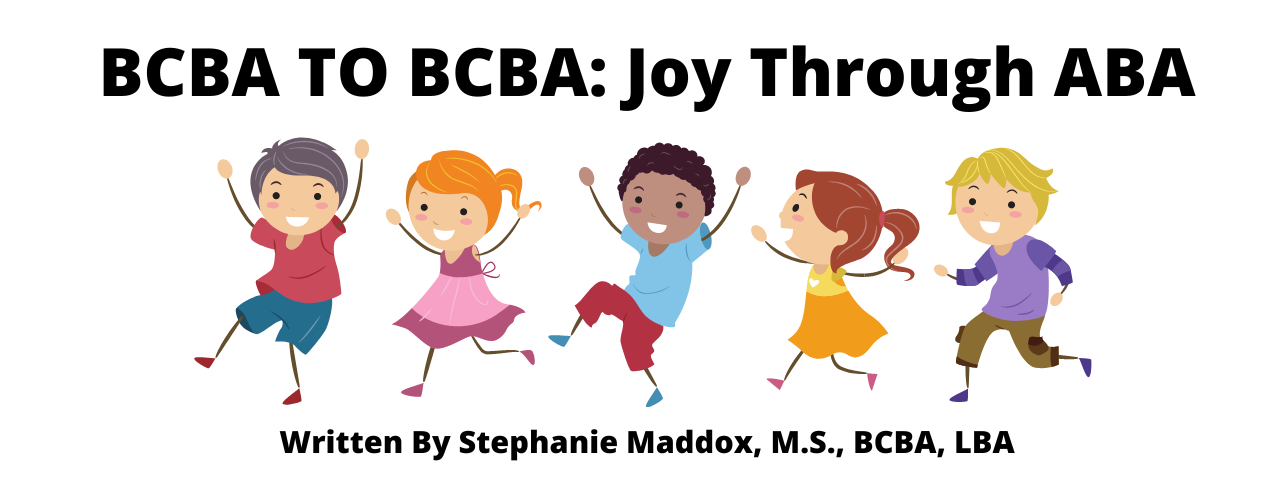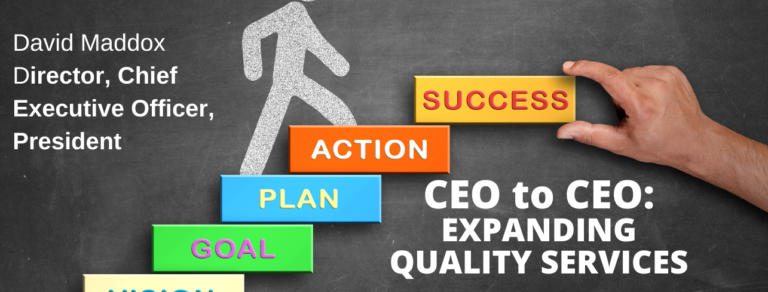Personal and Professional Relationships

BACB Ethics Rules over multiple relationships focus primarily upon limiting professional relationships with clients where personal relationships also exist with the client or with others related to the client. The underlying issue, however, is more than following the BACB rule. It’s about understanding “conflicts-of-interest,” where they arise, how they are managed, and when they become problems.
Every relationship involves conflicts-of-interest–even one’s relationship with oneself. That’s because we all wear multiple hats. Part of me likes peanut M&Ms. Another part of me wants to lose weight. A conflict-of-interest exists every time I walk into a 7-11. As Dad, I have a bunch of goals and priorities relating to my children. As Husband I have another bunch of goals and priorities relating to my marriage–some overlapping my Dad concerns and some in conflict. As a businessman, I have another set of goals and priorities, some again overlapping my Dad or Husband concerns, while others compete. My wife has her own groups of plans and purposes, some unified together and others not as much. Ditto for each relationship reflected among all the associates of any organization. Lots of people with lots of common interests…and other interests in conflict one with another.
Managing Personal Relationships with Business Associates
BCBAs learn quickly that personal relationships between a BT and a client or client’s family erode the effective implementation of ABA. Clients play on the personal ties–often unconsciously. Parents too. And even the techs. It’s human nature. But when the client pulls on those heartstrings and the BT slides on an already-placed demand, the game is over. Weeks of consistency is undone and the client is oh-so-motivated to hold out all the more next time.
BACB Ethics Rules are designed to help ABA practitioners to avoid vast swaths of such problems by flat-out forbidding multiple relationships in all but extreme cases. If alternate services are so unavailable that a prospective client is clearly injured more by withholding services from a related party than by providing them, then services may be provided on a temporary basis until more appropriate opportunities are procured. But it’s not ideal; it’s a stop-gap measure.
Professional and Private Functions
So how do personal relationships between staff members affect the professional function?
The answer depends substantially upon two factors–how well the participants understand conflicts-of-interest, and how individual character-development meets challenges both business and personal. Anyone planning to work with their own family members, for example, is particularly advised to study this subject because personal relationships within family are typically complex. They involve many hidden patterns. Expectations require extensive contemplation, definition, and communication. It’s worth taking a sober assessment of each person’s capacity, history, and ability to separate business from personal. The mutual accountability necessary requires humility, ongoing self-appraisal, patience, graceful confrontation, habitual forgiveness, and the ability to both give and to say “no” such that resentments don’t build and poison relationships.
Similar concerns arise over relationships between non-familial staffers–whether high-level or entry-level. Healthy friendships and cohesive, well-bonded work relationships can be the lifeblood of any business; but co-dependencies and misunderstandings occur all too easily and often outside the awareness of even the most astute.

Professional and Private Function
The business aspect of relationships between staffers rarely just “turn off” when they engage in some private event. Supervisors who host gatherings must remain especially alert. Improper influence can occur without any direct action or intent. Suppose the owner of an ABA practice, supervisor, or high-ranking administrative person holds an event at their home–perhaps a birthday party–and invites a few techs and/or the tech’s children. Assuming no clients are involved, that likely doesn’t violate BACB rules at all. But suppose an employee who attends comes away from the event and subtly imagines that because she’s a family friend she’s got a little extra leeway in how she does her job. Like the client who finds a way to pull on a tech’s heartstrings, that BT’s attitude toward her job and performance is just a little bit compromised. And those seeds can grow. Such an effect can be so difficult to avoid that many organizations work fiercely to avoid the potential–especially between supervisor and supervisees.
Implied Agency
There’s another concern–a legal principle called “Implied Agency.” When a staffer reasonably perceives some information, direction, idea, policy, procedure, or promise, from anyone having authority in an organization, regardless of whether the setting is business or private, regardless of whether or not the message was intended by the higher-level person, they may legitimately expect the organization to stand behind the communication conveyed by the authority figure. That’s because the authority figure is imbued with “implied agency”–the authority to speak on behalf of the organization.
Both express and implied agency happen all the time in the everyday life of a business. But normal business happens within standard guidelines and habitual routines. By contrast, private events provide the opportunity for all sorts of non-standard interactions. If a supervisory person is not extremely conscious of how she may be perceived, and what legal consequences could occur from her words and actions, she may easily create invisible trouble for the organization which might not become apparent until it’s too late. That’s particularly true if the supervisor interacts with company personnel who are NOT under her normal supervision and might pick up erroneous ideas that aren’t easily corrected in the normal process of doing business.
Another way that implied agency may more easily occur in a private (unsupervised) setting is that one member of your organization, directly or indirectly, indicates to another person that she has maybe some extra “pull” or influence at the company. People naturally want to feel and look important. There may even be some truth to the boast. But the effect is dangerous–not only because it could set up some failed expectation which eventually torpedoes morale, but because staffers may be tempted to “triangulate” between the person who implies exaggerated authority and the actual person in charge. The resulting confusion undermines proper communication channels and can ultimately sabotage what might otherwise have been healthy, long-lasting relationships between personnel and your organization.
Implied agency applies generally to anyone in a management role, but much more so to anyone in a senior management role. And that’s the case across all industries. Fields related to law or medicine, where conflicts-of-interest and confidentiality concerns flood virtually every professional relationship, require much higher standards and vigilance. ABA might just be the very toughest of all because the BACB took the most extreme set of ethics rules involving conflicting relationships–that of the psychiatry profession–and made theirs even more strict.
For those building a career in the field of ABA, concerns over multiple relationships extend further than actions that might violate the BACB Code of Ethics. Our problems begin with any perception by anybody, no matter how super-sensitive, because the industry is filled with people trained in hyper-sensitivity toward multiple relationships and conflicts-of-interest. If we are the least careless or appear less than fully vigilant, we send alarms through the community. Familial relationships multiply vulnerability, as some count practices which employ multiple family members as automatically suspect. Such suspicion may well be unfounded, but the wise practitioner doubly-prepares. People in ABA tend toward a high degree of conscientiousness, though sometimes overstated or misdirected. We aren’t promoting fear. We don’t discourage working with family or friends. Building healthy relationships within your team is crucial toward having a great team. But pay attention to boundaries. Think about it. Talk about it. And remember that the community is watching. Other practitioners need frequent reassurance that we are acutely attentive to all things ethical–that we not only know and care about the rules but that we go above and beyond to protect them as well as ourselves.








